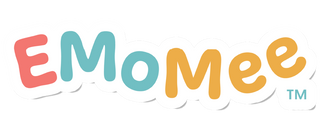
What are the Brain Development Activities for 2 Year Old Children?
Imagine a toddler who seems restless and easily distracted, struggling to focus on simple tasks or engage with toys meaningfully. Early childhood development is important because it is during these years when the youngest develop their cognitive functioning, which means toddlers should be engaged in fun-filled activities that increase their brain power. At the age of 2, a toddler develops motor skills rapidly. He learns to understand language, as well as solve problems. Providing the right brain development activities for 2-year-olds enables better learning, developing social skills as well as creativity in life.
Sensory Play for Cognitive Growth
By engaging toddlers in sensory activities, they learn about the world around them while developing fine motor skills and cognitive capacity. Hands-on experiences help them process, respond to, and understand unfamiliar stimuli.
- Water Play: When a child pours water from one cup to another, there is a challenge for him but also hand-eye coordination. The basic scientific concepts of cause and effect are taught using this simple form of brain development activities.
- Texture Exploration: A child exploring sand, cotton or rice- allows them to develop sensory awareness which meets their tactile development.
- Playdough Creations: Rolling, squishing, and molding play-dough enhances fine motor skills while encouraging creativity and imagination.
Storytelling and Language Enrichment
The early stages of brain development are accompanied by considerable development of language, and storytelling is one of brain development activities that plays an important part in increasing vocabulary and comprehension skills.
- Reading Picture Books and Flashcards: Reading simple stories with big illustrations aids in word recognition and memory retention. Books like Emomee Pop Guide to Boosting Confidence, and several other books also teach children to manage their emotions.
- Sing-Along Rhymes: Nursery rhymes when sung introduce rhythm and certain language patterns which are essential in developing language skills.
- Interactive Conversations: Regular talking, asking questions, and responding to your child's sounds and words tend to boost his speaking and listening skills.
Problem-Solving Activities for Cognitive Skills
Brain development activities that evoke a need for problem solving encourage logical thinking and enhance the child's decision-making skills.
- Shape Sorting Games: Give a child various blocks in different shapes, and ask him to match them in either round or square holes. This helps develop a mental form of intelligence quite rapidly.
- Simple Puzzles: Large-piece puzzles challenge toddlers to recognize patterns and improve concentration.
- Stacking Cups or Blocks: Brain development activities for 2 – year olds like building towers with cups or blocks helps with coordination and introduces the concept of balance.
Physical Play for Motor Skills Development
Physical activity is just as crucial as cognitive learning, as it supports brain growth and body coordination.
- Dancing and Music Time: Moving to music helps in coordination, rhythm recognition, and self-expression.
- Obstacle Courses: Setting up soft cushions and tunnels to crawl through improves gross motor skills and spatial navigation.
- Outdoor Play: Running, climbing, and playing with a ball enhance physical agility and problem-solving skills.
- Art and Creativity for Imagination: Boosting Artistic expression is a powerful way for toddlers to explore their emotions, improve motor skills, and enhance cognitive function.
- Finger Painting: Sensory rich brain development activities promote creativity and strengthen hand muscles.
- Coloring with Crayons: Helps with grip control and introduces basic color recognition.
- Sticker Play: Using stickers to create simple patterns improves concentration and hand-eye coordination.
Social Interaction for Emotional Intelligence
Developing social skills at an early age is essential for emotional intelligence and communication.
- Playdates with Peers: Encourages sharing, cooperation, and understanding social cues.
- Pretend Play: Engaging in role-playing activities like playing house or pretending to cook fosters imagination and empathy.
-
Facial Expression Games: Making different facial expressions and encouraging the child to mimic them helps in recognizing emotions.
Engaging in the right brain development activities for 2-year-olds lays a strong foundation for learning, creativity, and problem-solving. Activities that involve sensory exploration, storytelling, problem-solving, physical movement, artistic creativity, and social interaction all contribute to cognitive and emotional growth of toddlers. Explore the different brain development activities tools available at Emomee and create a stimulating environment that nurtures a child’s curiosity, imagination, and intelligence.
